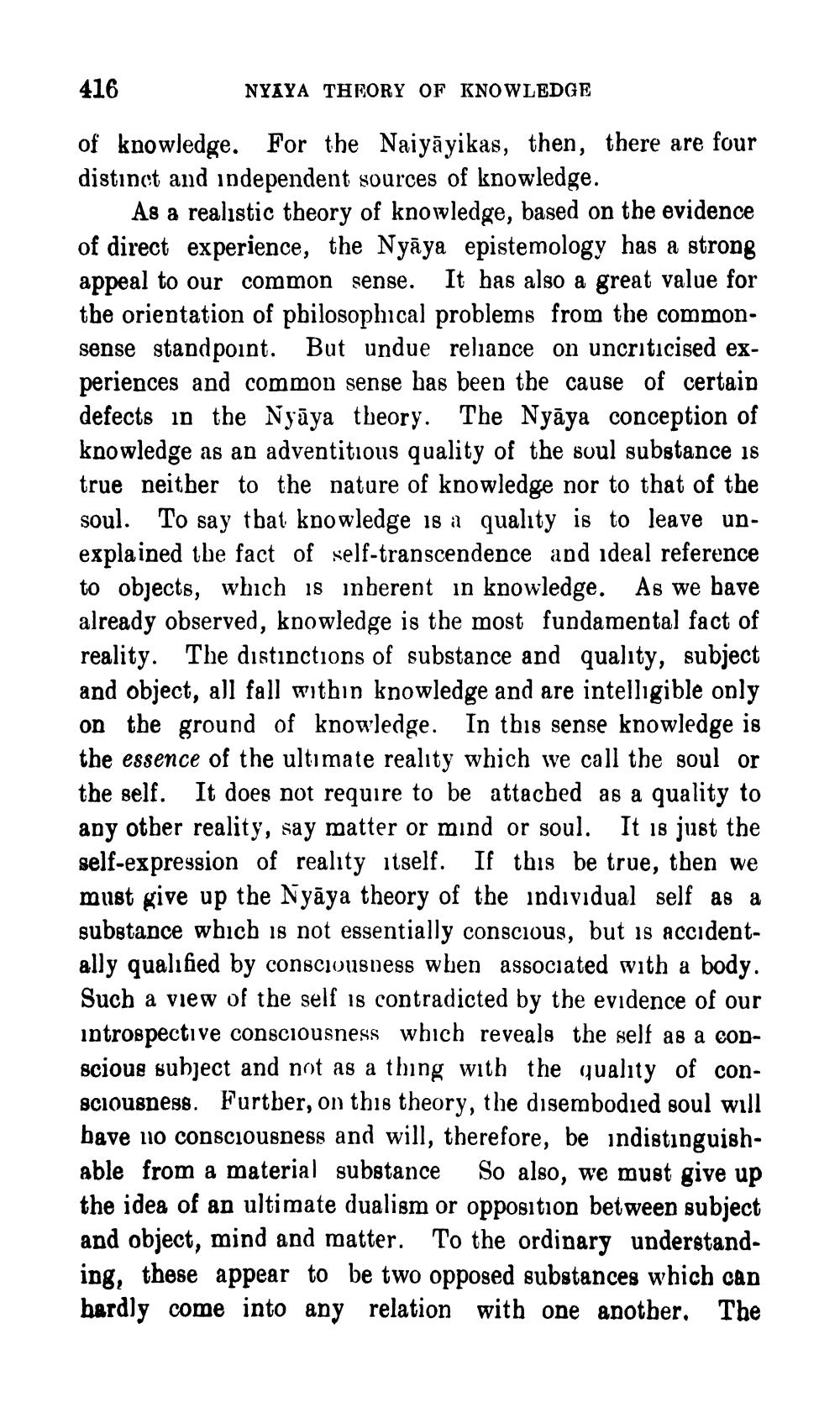________________
416
NYAYA THEORY OF KNOWLEDGE
of knowledge. For the Naiyāyikas, then, there are four distinct and independent sources of knowledge.
As a realistic theory of knowledge, based on the evidence of direct experience, the Nyāya epistemology has a strong appeal to our common sense. It has also a great value for the orientation of pbilosophical problems from the commonsense standpoint. But undue reliance on uncriticised experiences and common sense bas been the cause of certain defects in the Nyāya theory. The Nyāya conception of knowledge as an adventitious quality of the soul substance is true neither to the nature of knowledge nor to that of the soul. To say that knowledge is a quality is to leave unexplained the fact of self-transcendence and ideal reference to objects, which is inberent in knowledge. As we bave already observed, knowledge is the most fundamental fact of reality. The distinctions of substance and quality, subject and object, all fall within knowledge and are intelligible only on the ground of knowledge. In this sense knowledge is the essence of the ultimate reality which we call the soul or the self. It does not require to be attached as a quality to any other reality, say matter or mind or soul. It 18 just the self-expression of reality itself. If this be true, then we must give up the Nyāya theory of the individual self as a substance wbich is not essentially conscious, but is accidentally qualified by consciousness when associated with a body. Such a view of the self is contradicted by the evidence of our introspective consciousness which reveals the self as a conscious subject and not as a thing with the quality of consciousness. Furtber, on this theory, the disembodied soul will bave no consciousness and will, therefore, be indistinguishable from a material substance So also, we must give up the idea of an ultimate dualism or opposition between subject and object, mind and matter. To the ordinary understanding, these appear to be two opposed substances which can hardly come into any relation with one another. The




